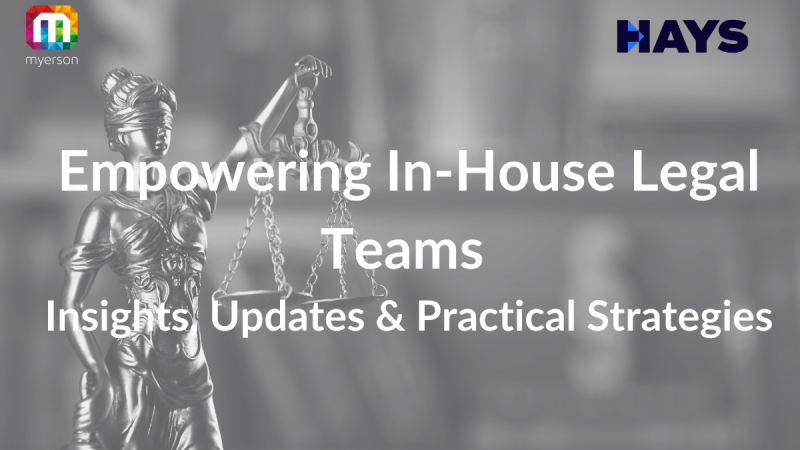
Myerson Solicitors in the Running for The Lawyer Awards 2025 in “The Independents” Category
Top 200 UK law firm Myerson Solicitors is delighted to announce its shortlisting for The Lawyer Awards 2025 in the prestigious “The Independents” category. This recognition comes after a year of significant growth and transformation, reflecting the...
Read NewsFind what you're looking for here
Filter by content type, specialist area or date here...

Myerson Shortlisted for 'Team of the Year - Cheshire' at 2025 North West Rainmaker Awards
We’re proud to announce that Myerson has been shortlisted in the ‘ Team of the Year – Cheshire’ category at the 2025 North West Rainmaker Awards , hosted by TheBusinessDesk. com . The Rainmaker Awards celebrate the North West’s leading individuals...
Read News
Manchester Legal Awards 2025: Myerson Shortlisted in Two Key Categories
Myerson is proud to announce that it has been shortlisted in two key categories at the Manchester Legal Awards 2025: Corporate & Commercial Team of the Year and Large Law Firm of the Year (20+ Partners). This latest shortlisting recognises a...
Read News
Who Gets The House When An Unmarried Couple Splits Up?
When a cohabiting couple separates, the parties often want to know what happens with the property. Are they able to sell it? How is the equity split between them? Ultimately, if the parties are unable to agree between themselves, then the Court...
Read Blog
Navigating Liability Caps: An Overview From Topalsson v Rolls-Royce
Liability caps are among the most heavily negotiated terms in commercial contracts . They also come under close scrutiny in litigation when the defendant seeks to rely on the liability cap to reduce the amount it has to pay in damages. Our...
Read Blog
How To Start Divorce Proceedings
Making the decision to get a divorce can be a particularly emotional and stressful time in someone’s life. However, the process of getting a divorce does not need to be complicated, especially with the use of the services of a specialist family...
Read Blog
Pregnancy Discrimination in the UK: One Woman Loses Her Job Every 7 Minutes
Recent data from the campaign group Pregnant Then Screwed has revealed that approximately 74,000 women lose their jobs simply for being pregnant or for taking maternity leave. That's the equivalent of one woman being pushed out of her job every...
Read Blog
15
Webinar: Retail Sector Legal Update: Navigating Legal Change in 2025
Our specialist lawyers will guide you through the latest legal developments across insolvency, property, employment, and commercial legislation, equipping you with the knowledge you need to manage risk and support business continuity. What we will...
View Event
Annulment of Bankruptcy Orders: When and How to Annul a Bankruptcy in England and Wales
Bankruptcy is a formal process by means of which individuals (known as ‘debtors’) can respond to and deal with debts that they simply cannot pay, or it can be a means by which creditors seek to recover debts owed to them by a debtor. Bankruptcy in...
Read Blog
The Drowning Of Paula Leeson: Channel 5 Programme Rediscovers Tragic Case Of £4 Million Heiress Unlawfully Killed By Husband
The tragic death of Paula Leeson – an heiress with a £4 million fortune who drowned in a swimming pool whilst on holiday in 2017 – is the topic of Channel 5's new gripping documentary that aired at 8pm on Wednesday, 30 April 2025. Paula's husband...
Read Blog
The Rise of AI in UK Financial Services: FCA and PRA Strategy, Risks and Regulation
Our expert Financial Services lawyers explore the growing role of Artificial Intelligence (AI) within the UK financial services sector, and how regulators are responding to its rapid adoption. In March 2025, the Financial Conduct Authority (FCA...
Read Blog
10
Seminar: Empowering In-House Legal Teams - Insights, Updates & Practical Strategies
Tuesday 10 June 2025 | 8:30am–10:30am Hybrid Event – Attend in Person at Myerson Solicitors, Altrincham, Greater Manchester, or Join Online Join Myerson Solicitors for a focused and practical morning session, designed exclusively for in-house legal...
View Event
Myerson CEO Carl Newton Joins “Altrincham Talks: The Business Edit” Podcast
Our CEO, Carl Newton, recently appeared as a guest on Altrincham Talks: The Business Edit – a podcast produced by Visit Altrincham that shines a spotlight on local business leaders and their journeys. In Episode 6, Carl discusses his inspiring...
Read News